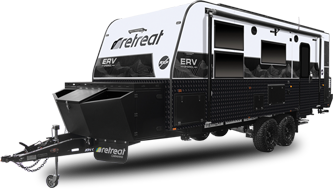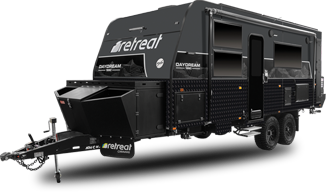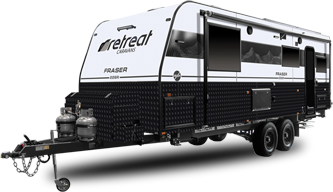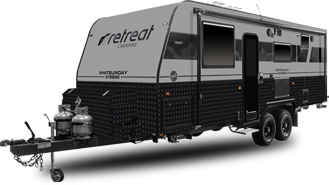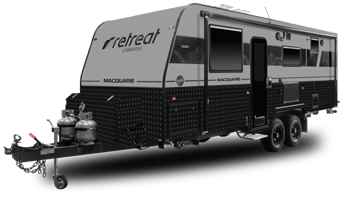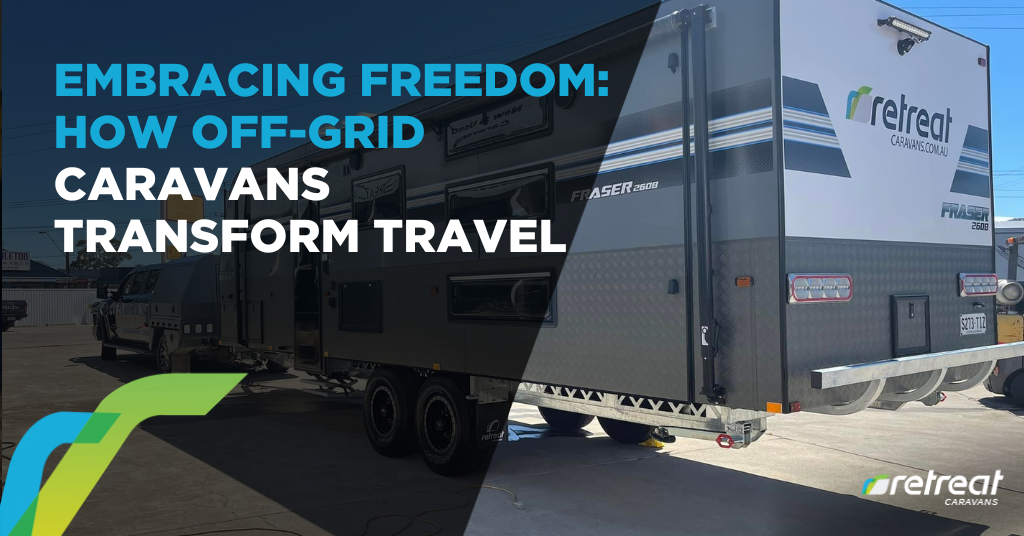
Embracing Freedom: How Off-Grid Caravans Transform Travel
Off-grid caravans are designed to help you roam further and longer. These self-sufficient setups offer the ability to explore Australia’s most remote and beautiful destinations without needing to plug in or check out. With the right power, water, and gear systems in place, you can ditch the constraints of traditional campsites and embrace true autonomy. For travellers who crave flexibility and independence, off-grid caravans represent more than just a different way to travel—they offer an entirely new way of living.
What Off-Grid Travel Really Means
Off-grid travel isn’t just about skipping the powered sites. It’s about creating a setup that can operate independently—electrically, mechanically, and structurally. That means solar generation, water storage, battery management, and a caravan strong enough to handle rugged tracks.
Travelers often factor in durability and lifestyle accessories when setting up for the bush. Items like portable solar blankets or external tool carriers are part of what many consider essential caravan accessories for off-road trips, helping extend stays and reduce setup hassle.
Why Solar Power is the Heart of Freedom
Solar sits at the centre of an off-grid setup. Panels on the roof of your van (or portable panels you place when parked) generate electricity during daylight hours. This energy is stored in batteries and powers your lighting, appliances, water pumps, and phone or laptop charging.
For modern vans with smart energy management systems, the balance between solar input and battery output is surprisingly easy to track. Good setups remove guesswork and help you make the most of every sunlit hour.
The Role of Water Systems in Staying Off-Grid
Water is usually the first thing to run out when off-grid. That’s why most off-road vans are fitted with multiple water tanks—both fresh and grey—to extend independence. Saving water through efficient fittings and pressure-controlled taps makes a huge difference over a week-long stay.
When mapping out the essentials before a trip, travellers often refer to tips for preparing your caravan for adventure to make sure water systems and backup filters are good to go.
Off-Road Capabilities That Expand Your Reach
Off-grid doesn’t mean off-road, but it often comes with the territory. A true off-grid van is typically equipped with reinforced suspension, stronger chassis, and all-terrain tyres. These additions make it possible to explore lesser-travelled routes, gravel roads, and bush trails without the anxiety of damage.
Structural clearance, weight distribution, and upgraded brakes also play a role—especially when travelling far from mechanical help.
Cooking Without Limits
The cooking experience has evolved in off-grid setups. With gas stoves, 3-way fridges, and even outdoor kitchens now common, you’re not limited to basic meals. Those running lithium batteries and inverter systems can even operate air fryers or coffee machines with confidence.
It’s common for long-haul travellers to pre-prep ingredients, portion meals into reusable containers, and reduce reliance on fresh produce—especially when fridge space is limited.
Sleeping Soundly, Even in Harsh Conditions
After a long day on the road, comfort matters. A well-insulated van protects against extreme heat and cold, while double-glazed windows, ventilation fans, and thermal screens help regulate internal climate.
Diesel heaters and fans with thermostats are becoming standard features. The goal is to rest well and feel refreshed—something that makes a huge difference when staying off-grid for days or weeks at a time.
Smart Storage Systems for Extended Travel
Storage isn’t just about space—it’s about access and reliability. Under-bed compartments, roof racks, and tunnel boots help keep tools, fuel, and food well organised. Well-labeled containers and dedicated spots for every item cut down on stress and save time.
When setting up long-term gear loads, many travellers refer back to a gear checklist for off-grid camping success to help them plan properly and pack smarter.
Mental Freedom: The Hidden Reward
Beyond batteries and bush tracks, off-grid travel provides something deeper: freedom from routine. The absence of reception, structure, and urgency allows you to slow down, reset, and rediscover what time outdoors actually feels like.
No check-in times. No booking apps. No pressure to move on. Just space to be present, explore at your own pace, and follow the road wherever it leads. For many, that mental clarity is the real destination.
FAQs
1) What’s the ideal power setup for going off-grid?
There’s no single answer, because every traveller’s needs are different. A common baseline setup includes around 400W of solar panels and 200Ah of lithium batteries. This usually covers lighting, refrigeration, device charging, and water pumps.
For those wanting to run larger appliances—like coffee machines or air conditioners—more capacity is needed. Think 600–800W of solar and 300–400Ah battery storage. A 2000W inverter is generally enough to support most household-style devices.
It’s also worth remembering that good wiring and an efficient MPPT regulator will improve system performance. And if you want peace of mind, keeping a backup generator (even if rarely used) is a solid insurance policy.
2) How long can I stay off-grid?
Most travellers find that 5–7 days is achievable on a standard setup. With good planning—water conservation, energy awareness, and sensible food storage—you can push that out to 10–14 days without too much discomfort.
What usually limits people is water or fridge space rather than electricity. The more you monitor your usage, the better you get at stretching it. Adding a filtration system or carrying jerry cans gives you backup options, especially near water sources.
Many off-grid travellers start with weekend trips and build up to longer adventures as they dial in their habits and systems.
3) Can I live off-grid full time?
Absolutely—but it takes preparation and a change in mindset. Full-time off-grid living involves more than just a good caravan. You’ll need stable power generation, durable components, and flexible communications like Starlink or UHF radio.
Full-timers often set up additional solar blankets or panels when camped. They also keep track of maintenance, replacing parts before they fail. Working remotely adds another layer, so managing data usage and signal coverage is crucial.
Above all, it’s a lifestyle of simplicity, resourcefulness, and patience. Those who embrace it say the payoff is unmatched—living closer to nature, far from the noise, and fully on your own terms.
4) Is off-grid caravanning safe?
Yes—provided you prepare well. Remote travel has risks, but most are manageable with the right precautions. Share your route with someone back home. Carry basic recovery gear, a first-aid kit, and reliable maps (digital and paper).
Phone signal can’t be relied on, so investing in a PLB or satellite messenger is a smart idea. Even a UHF radio can come in handy when travelling in convoy.
Stay weather-aware, check local updates for bushfire or flood alerts, and always trust your instincts—if something feels off, it probably is.
5) What’s the best way to get started with off-grid travel?
Ease into it. Try a few unpowered weekends and keep notes on what you run out of or wish you had. Test your gear, make upgrades, and learn as you go.
Watch videos, talk to seasoned travellers, and ask questions. Every trip teaches you something, and part of the fun is tweaking your setup each time.
The more confident you get with your gear and habits, the more you’ll enjoy the freedom that comes from complete independence.
Call to Action
If you’re looking to level up your off-grid setup and explore Australia’s remote beauty without compromise, check out Retreat Caravans. We’re building caravans tough enough to take you anywhere—and keep you there. See below for our full range of caravans, all carefully designed with you in mind:



